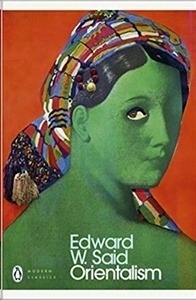Orientalism
Western Conceptions of the Orient

Editorial Penguin UK
Fecha de edición agosto 2003
Idioma inglés
EAN 9780141187426
432 páginas
Libro
encuadernado en tapa blanda
Resumen del libro
For generations now, Edward W. Said's Orientalism has defined our understanding of colonialism and empire, and this Penguin Modern Classics edition contains a preface written by Said shortly before his death in 2003. In this highly-acclaimed work, Edward Said surveys the history and nature of Western attitudes towards the East, considering orientalism as a powerful European ideological creation - a way for writers, philosophers and colonial administrators to deal with the 'otherness' of eastern culture, customs and beliefs.
He traces this view through the writings of Homer, Nerval and Flaubert, Disraeli and Kipling, whose imaginative depictions have greatly contributed to the West's romantic and exotic picture of the Orient. Drawing on his own experiences as an Arab Palestinian living in the West, Said examines how these ideas can be a reflection of European imperialism and racism. Edward W.
Said (1935-2003) was a Palestinian-American cultural critic and author, born in Jerusalem and educated in Egypt and the United States. His other books include The Question of Palestine, Culture and Imperialism and Out of Place: A Memoir. If you enjoyed Orientalism, you might like Frantz Fanon's The Wretched of the Earth, also available in Penguin Modern Classics.
'Stimulating, elegant and pugnacious'Observer'Beautifully patterned and passionately argued'New Statesman'Very exciting ... his case is not merely persuasive, but conclusive' John Leonard, New York Times'Magisterial'Terry Eagleton
Biografía del autor
x{0026}lt;P x{0026}lt;B Edward W. Saidx{0026}lt;/B (1935-2003) fue uno de los intelectuales árabes más importantes del siglo XX. Nacido en Jerusalén en una familia palestina, se educó en el Victoria College de El Cairo, en el Mount Hermon School de Massachusetts y en las Universidades de Princeton y Harvard. Fue profesor de literatura inglesa de la Universidad de Columbia desde 1963 hasta su muerte. Además, en 1974 fue profesor visitante de literatura comparada en Harvard; en 1975-76, miembro del Center for Advanced Study in Behavioral Science de Stanford, y en 1979, profesor visitante de humanidades en la Universidad de John Hopkins. Fue director del Arab Studies Quarterly y miembro del Council on Foreign Relations de Nueva York, de la Academy of Literary Studies y del PEN. Entre múltiples premios recibió el Premio Bowdoin de la Universidad de Harvard y el Lionel Trilling Award en 1976, así como el Príncipe de Asturias en el año 2002.x{0026}lt;/P








